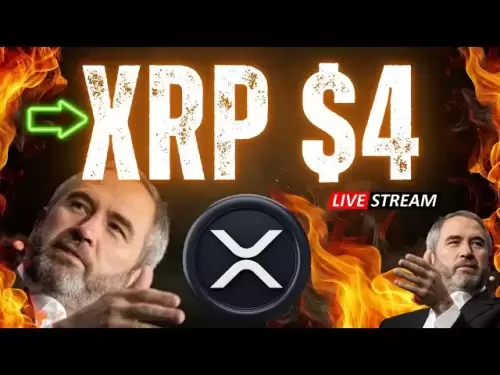-
 Bitcoin
Bitcoin $118300
-1.72% -
 Ethereum
Ethereum $3591
-0.69% -
 XRP
XRP $3.478
-3.53% -
 Tether USDt
Tether USDt $1.001
-0.01% -
 BNB
BNB $737.7
-0.54% -
 Solana
Solana $177.3
-2.40% -
 USDC
USDC $0.9999
-0.01% -
 Dogecoin
Dogecoin $0.2538
7.04% -
 TRON
TRON $0.3256
-0.85% -
 Cardano
Cardano $0.8332
-3.48% -
 Hyperliquid
Hyperliquid $44.80
-3.30% -
 Stellar
Stellar $0.4672
-6.09% -
 Sui
Sui $3.828
-5.98% -
 Chainlink
Chainlink $18.15
-3.41% -
 Hedera
Hedera $0.2655
-7.16% -
 Bitcoin Cash
Bitcoin Cash $517.5
-0.64% -
 Avalanche
Avalanche $23.89
-2.37% -
 Shiba Inu
Shiba Inu $0.00001519
-0.45% -
 UNUS SED LEO
UNUS SED LEO $8.973
0.13% -
 Toncoin
Toncoin $3.211
-2.54% -
 Litecoin
Litecoin $103.5
-3.58% -
 Polkadot
Polkadot $4.313
-3.90% -
 Uniswap
Uniswap $10.31
0.67% -
 Monero
Monero $325.4
-2.88% -
 Bitget Token
Bitget Token $5.049
3.51% -
 Ethena USDe
Ethena USDe $1.002
0.04% -
 Pepe
Pepe $0.00001346
-2.96% -
 Dai
Dai $0.9999
-0.02% -
 Aave
Aave $322.1
-2.93% -
 Bittensor
Bittensor $411.9
-4.70%
Is an ETH ETF a good investment?
An ETH ETF offers investors exposure to Ethereum’s price through traditional exchanges, combining accessibility with regulatory oversight but lacking direct ownership and staking benefits.
Jul 14, 2025 at 07:49 am
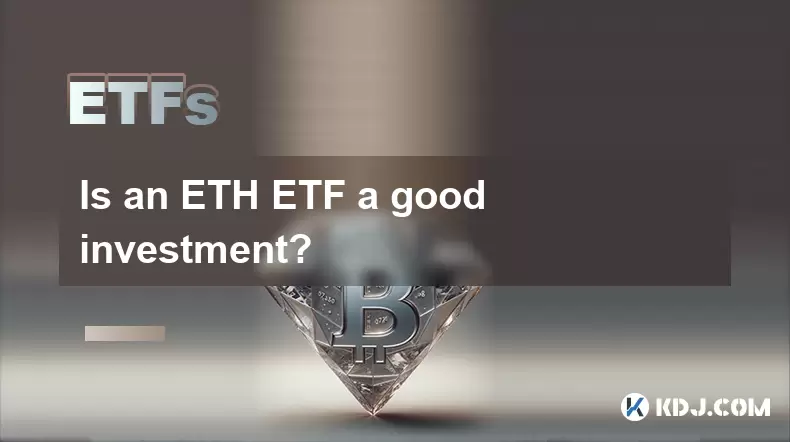
Understanding What an ETH ETF Is
An ETH ETF (Ethereum Exchange-Traded Fund) is a financial product that tracks the price of Ethereum (ETH) and is traded on traditional stock exchanges. Unlike directly holding Ethereum in a digital wallet, investing in an ETH ETF allows investors to gain exposure to Ethereum’s price movements without dealing with the complexities of blockchain wallets or crypto exchanges.
The structure of an ETH ETF typically involves the fund holding actual Ethereum or derivatives linked to its price. This makes it more accessible to institutional and retail investors who may not be comfortable with cryptocurrency infrastructure but want to benefit from its growth potential.
Key advantages include liquidity, ease of access, and regulatory oversight.
Regulatory Landscape and Approval Status
One of the most critical factors influencing whether an ETH ETF is a good investment lies in its regulatory approval status, especially in major markets like the United States. The SEC (U.S. Securities and Exchange Commission) has historically been cautious about approving crypto-based ETFs due to concerns around market manipulation, custody solutions, and investor protection.
As of now, several asset management firms have submitted proposals for spot ETH ETFs, but none have received full approval. However, futures-based ETH ETFs may already exist in some jurisdictions outside the U.S., offering indirect exposure through futures contracts rather than direct ownership of ETH.
- Firms like BlackRock, Fidelity, and Ark Invest have filed for spot ETH ETFs.
- The SEC has previously approved Bitcoin futures ETFs, setting a precedent.
- Approval timelines remain uncertain and are subject to regulatory scrutiny.
Risk Profile of ETH ETFs Compared to Direct Investment
Investing in an ETH ETF comes with its own set of risks and benefits when compared to buying and holding Ethereum directly on a cryptocurrency exchange. One major distinction is the absence of private key control — in an ETF, the fund manages the underlying assets, which eliminates the need for self-custody but also removes full control from the investor.
Another consideration is tracking error. While ETFs aim to mirror the price of ETH, there can be discrepancies due to fees, fund mechanics, and secondary market trading dynamics.
- ETFs eliminate custodial risk but introduce counterparty and fund management risk.
- Direct crypto ownership provides full control but requires secure storage practices.
- Trading costs and bid-ask spreads in ETFs may differ from crypto exchange fees.
Market Volatility and Performance Expectations
Ethereum remains a highly volatile asset, and this volatility extends to any ETF designed to track its value. Investors should be prepared for significant price swings based on macroeconomic conditions, technological developments, regulatory news, and broader market sentiment toward cryptocurrencies.
Historically, Ethereum has shown strong performance during bull cycles, often outperforming Bitcoin due to its utility in decentralized finance (DeFi), smart contracts, and NFT ecosystems. However, during bear markets, ETH can experience steep declines, making timing and diversification crucial.
Volatility should be evaluated against an investor's risk tolerance and time horizon.
Tax Implications and Reporting Requirements
Investing in an ETH ETF may carry different tax implications compared to owning Ethereum directly. In many jurisdictions, ETFs are treated as traditional securities, which can simplify reporting and compliance for investors.
In contrast, owning cryptocurrency outright may trigger capital gains taxes upon each transaction, including transfers between wallets or exchanges. ETFs, being centralized instruments, may offer clearer documentation for tax purposes.
- ETFs may provide Form 1099 or similar documents for easier tax filing.
- Direct crypto ownership may require detailed transaction records and cost basis calculations.
- Tax laws vary by country and evolve rapidly in relation to crypto assets.
Frequently Asked Questions
Q: Can I stake Ethereum through an ETH ETF?
A: No, staking rewards are generally not passed on to investors in an ETH ETF. The fund typically holds ETH or derivatives but does not participate in network validation activities.
Q: Are ETH ETFs available outside the U.S.?
A: Yes, certain jurisdictions such as Canada and Europe have approved ETH ETFs or similar products. These funds operate under local regulations and may differ in structure from hypothetical U.S.-listed versions.
Q: How do expense ratios compare between ETH ETFs and crypto exchanges?
A: Expense ratios for ETFs can range from 0.25% to over 1%, depending on the provider. Holding ETH directly incurs trading fees and potentially wallet service charges, which may be lower or higher depending on usage patterns.
Q: Will an ETH ETF affect Ethereum’s price?
A: If approved, an ETH ETF could increase demand for Ethereum by attracting institutional flows and broader retail participation. However, it could also introduce selling pressure if the fund engages in regular rebalancing or hedging activities.
Disclaimer:info@kdj.com
The information provided is not trading advice. kdj.com does not assume any responsibility for any investments made based on the information provided in this article. Cryptocurrencies are highly volatile and it is highly recommended that you invest with caution after thorough research!
If you believe that the content used on this website infringes your copyright, please contact us immediately (info@kdj.com) and we will delete it promptly.
- Crypto Picks: Navigating the Meme Coin Mania – Toshi, Ski Mask Dog, and the Elusive Pepe Coin 30,000% Rally
- 2025-07-19 14:30:13
- SUI Blockchain, Unilabs, and Curve Finance: A New Era of Crypto Investments?
- 2025-07-19 15:10:12
- Riding the Altcoin Wave: ADA Price, XRP Surges, and the Season of Opportunity
- 2025-07-19 15:30:12
- MoonBull, Meme Coins, and Your Watchlist: What's Hot Right Now
- 2025-07-19 14:30:13
- Crypto Market Mania: Ethereum Surges, Trump's Company Cashes In!
- 2025-07-19 12:30:13
- NFT Trading, Users, and the Quest for a Comeback: What's the Deal?
- 2025-07-19 12:30:13
Related knowledge
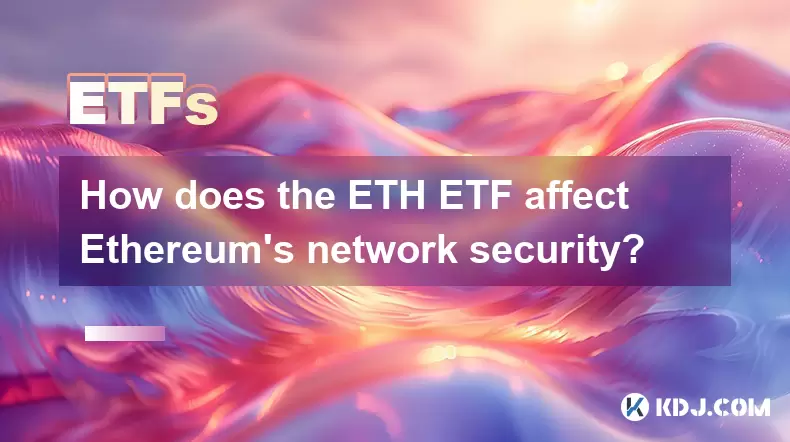
How does the ETH ETF affect Ethereum's network security?
Jul 17,2025 at 01:29pm
Understanding the ETH ETF ConceptAn Ethereum Exchange-Traded Fund (ETH ETF) is a financial product that allows investors to gain exposure to Ethereum ...
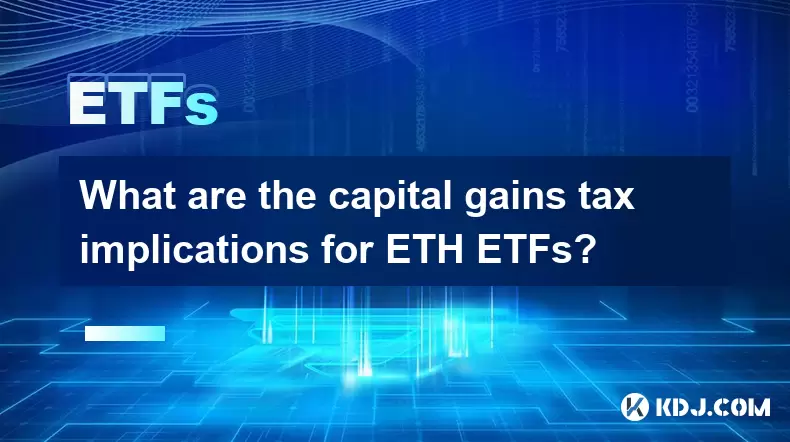
What are the capital gains tax implications for ETH ETFs?
Jul 18,2025 at 08:00am
Understanding Capital Gains Tax in Cryptocurrency InvestmentsCapital gains tax is a tax imposed on the profit realized from the sale of an asset that ...
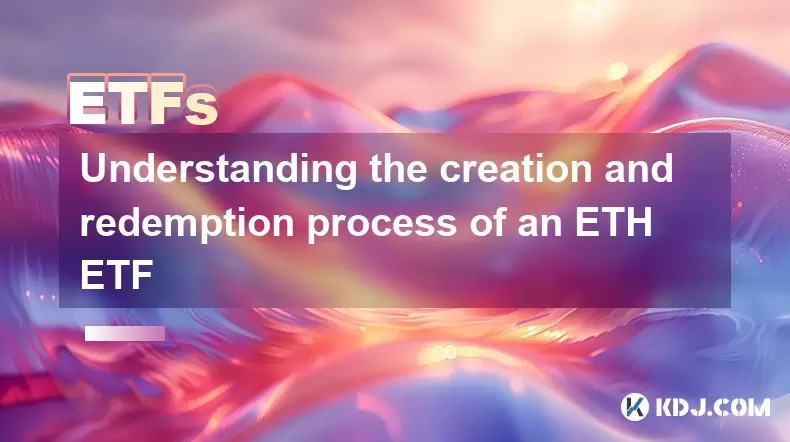
Understanding the creation and redemption process of an ETH ETF
Jul 19,2025 at 07:36am
What is an ETH ETF?An ETH ETF (Ethereum Exchange-Traded Fund) is a financial product designed to track the price of Ethereum without requiring investo...
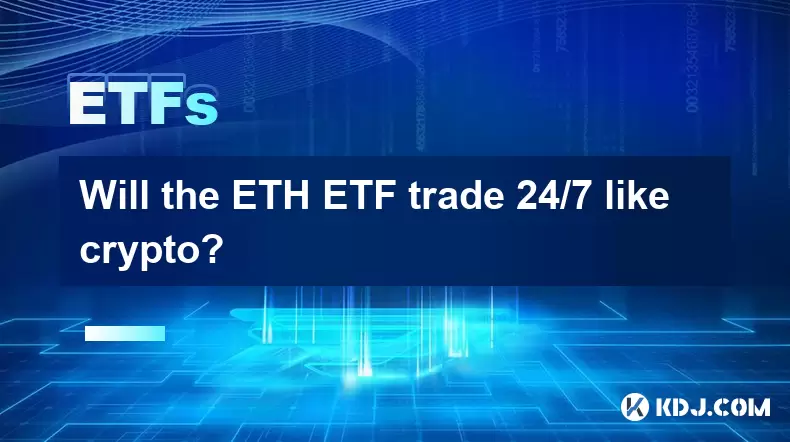
Will the ETH ETF trade 24/7 like crypto?
Jul 18,2025 at 10:00am
Understanding the ETH ETF and Its Trading HoursThe Ethereum Exchange-Traded Fund (ETH ETF) is a financial product that allows investors to gain exposu...
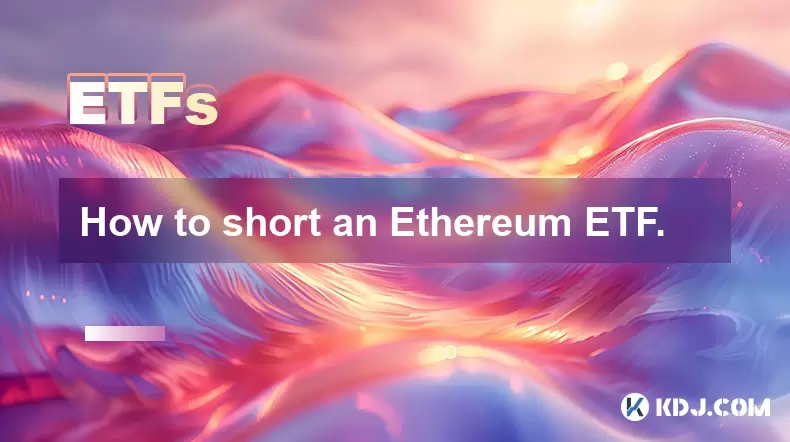
How to short an Ethereum ETF.
Jul 17,2025 at 05:43pm
Understanding the Concept of Shorting an Ethereum ETFShorting an Ethereum ETF involves betting against the price of Ethereum through a specific exchan...
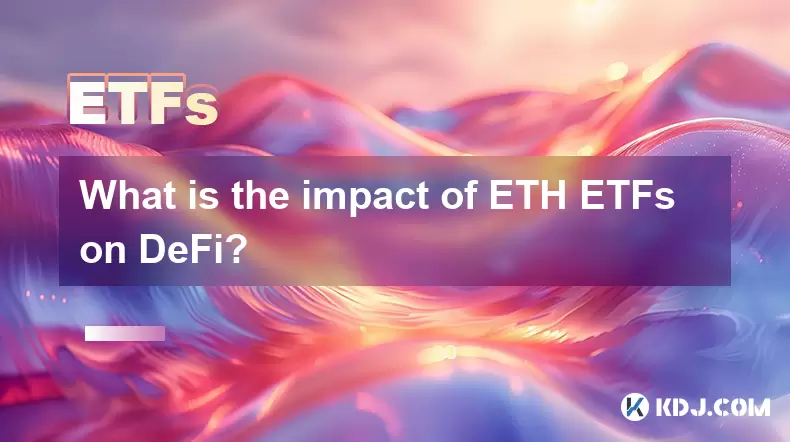
What is the impact of ETH ETFs on DeFi?
Jul 17,2025 at 11:07pm
Understanding ETH ETFs and Their Role in the Cryptocurrency MarketAn ETH ETF (Ethereum Exchange-Traded Fund) is a financial product that tracks the pr...

How does the ETH ETF affect Ethereum's network security?
Jul 17,2025 at 01:29pm
Understanding the ETH ETF ConceptAn Ethereum Exchange-Traded Fund (ETH ETF) is a financial product that allows investors to gain exposure to Ethereum ...

What are the capital gains tax implications for ETH ETFs?
Jul 18,2025 at 08:00am
Understanding Capital Gains Tax in Cryptocurrency InvestmentsCapital gains tax is a tax imposed on the profit realized from the sale of an asset that ...

Understanding the creation and redemption process of an ETH ETF
Jul 19,2025 at 07:36am
What is an ETH ETF?An ETH ETF (Ethereum Exchange-Traded Fund) is a financial product designed to track the price of Ethereum without requiring investo...

Will the ETH ETF trade 24/7 like crypto?
Jul 18,2025 at 10:00am
Understanding the ETH ETF and Its Trading HoursThe Ethereum Exchange-Traded Fund (ETH ETF) is a financial product that allows investors to gain exposu...

How to short an Ethereum ETF.
Jul 17,2025 at 05:43pm
Understanding the Concept of Shorting an Ethereum ETFShorting an Ethereum ETF involves betting against the price of Ethereum through a specific exchan...

What is the impact of ETH ETFs on DeFi?
Jul 17,2025 at 11:07pm
Understanding ETH ETFs and Their Role in the Cryptocurrency MarketAn ETH ETF (Ethereum Exchange-Traded Fund) is a financial product that tracks the pr...
See all articles

























